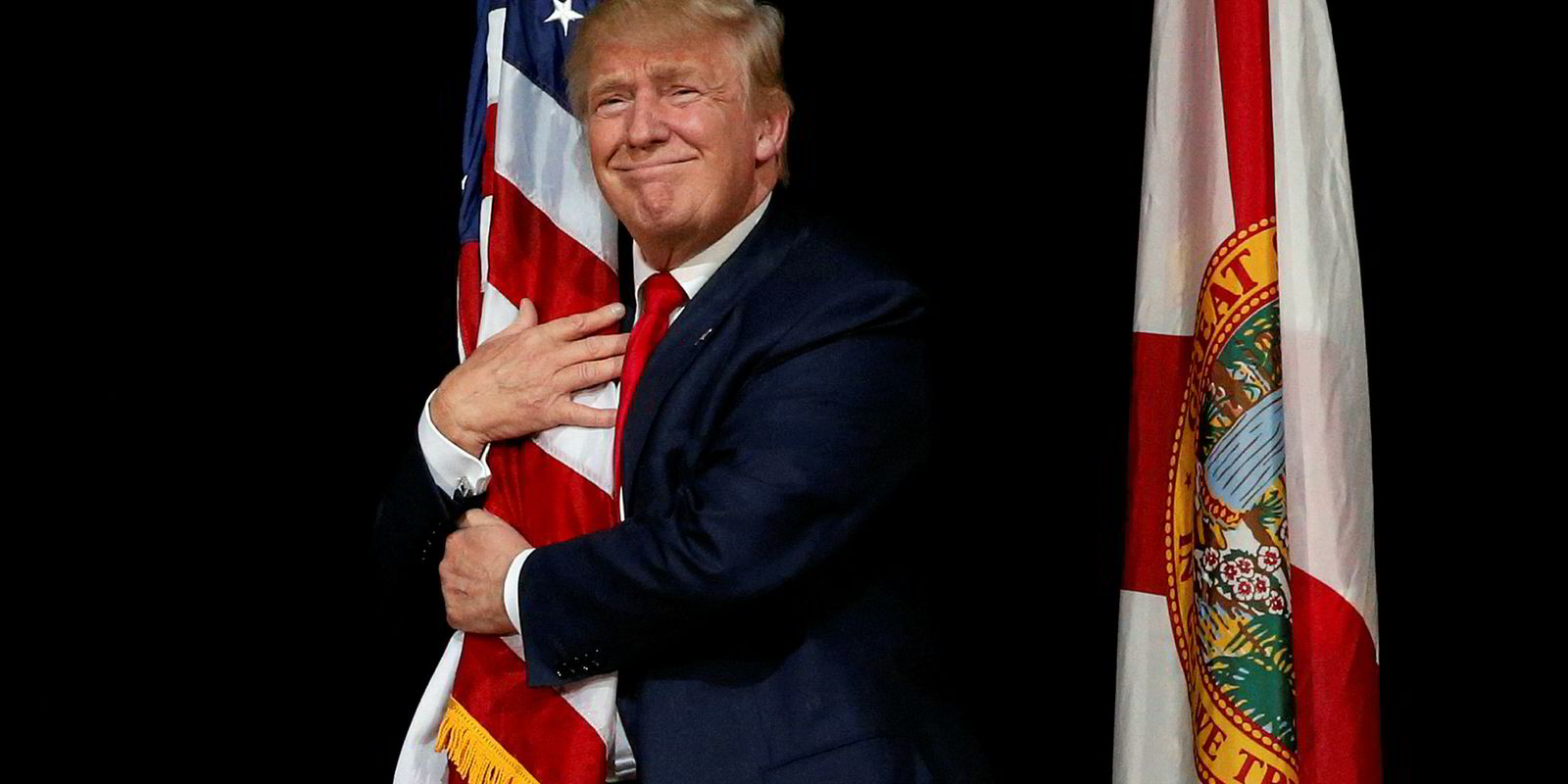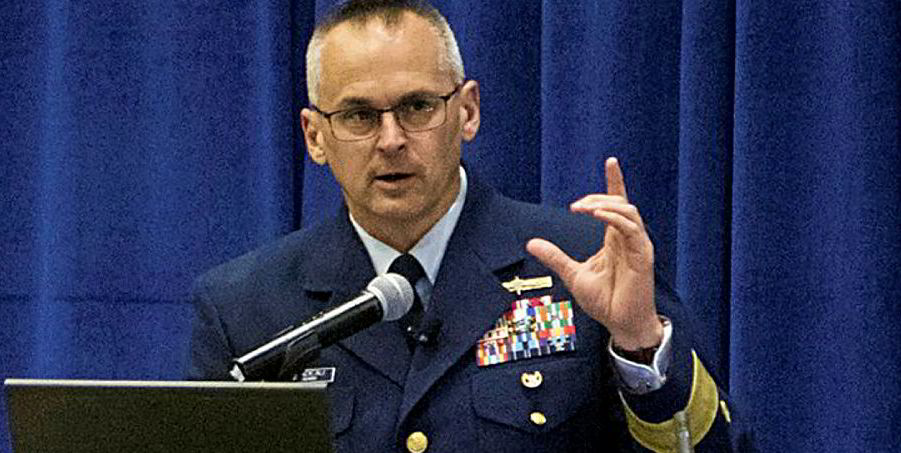It would be good if the architect of the slogan Make America Great Again set his mind to Make the US-Flag Fleet Great Again. Donald Trump may not have noticed the scathing report into the 2015 El Faro casualty or that the safety record of the national fleet is now considered so poor as to rank alongside Iran.
He has a lot of other things on his plate, what with trade wars with China, wars of words with Iran and legal wars with his own Mueller inquiry into alleged election manipulation.
But the US president who claims to set so much store by looking after his country’s narrow interests should wake up to the fact he is presiding over an embarrassing maritime record.
The Paris Memorandum of Understanding on Port State Control — a 27-nation body as near as the world has to a monitor of substandard vessels at the dockside, has taken the Stars and Stripes off the white list of good practice and added it to the grey list of poorer operators alongside Russia and Kazakhstan, not to mention Algeria and Albania.
Could things get blacker?
It could be worse: the US is not yet on the black list alongside Togo and the Republic of Congo. But the world’s economic superpower should not have such a dismal record of detentions in its flag's fleet that it is put on the grey list.

As veteran American shipping casualty lawyer Brian Starer put it in a piece written by my colleague Michael Angell: “It is unusual to see a highly industrialised country with a long maritime history be in the grey category.”
Indeed it is. While only five US-flag vessels had been detained by port state control for safety problems in the three years to the end of 2016, nine have suffered this fate in the 24 months to the start of this year. And all of this in the shadow of continual cuts to the budget of the key organisation in the front line of keeping American waters safe: the US Coast Guard (USCG).
The world’s economic super power should not have such a dismal record of detentions in its flag's fleet that it is put on the Grey List.
The problem is that if a public body cannot do this work, more and more safety inspections will have to be passed on to third parties, namely class societies.
That should be fine, but critics will point out that a class society can be compromised by its commercial relationships with particular shipowners.
Rear Admiral John Nadeau, who took over the top safety job at the USCG last summer, has promised to turn the US-flag fleet’s safety record around. But equally, he spoke at Posidonia last month about the need for regulators such as the USCG to facilitate commerce and do their best not to impede it.
This is a fine line to draw at a time when the US fleet landing on the grey list could discourage charterers from using US-flag tonnage.

Equally worrying is the fact that an ancient ro-ro, the 5,330-lane-metre El Faro (built 1975), could sink so dramatically with the loss of 33 lives and still seemingly have been in compliance with the USCG, the flag state and its classification society, ABS.
The poor old captain got much of the blame (although he bravely and honourably stayed on the bridge until the end) for refusing to change course when faced with a force three hurricane, but the National Transportation Safety Board report into the accident handed down in December did not hold back in its criticism.
Properly functioning instruments
“[We] require your vessels to be equipped with properly operating meteorological instruments, including functioning barometers, barographs, and anemometers,” it said to TOTE Services, the management arm of El Faro owner TOTE Maritime.
And then this to ABS: “[We want you to] enhance training of your surveyors to ensure that they are properly qualified and supported to perform effective, accurate and transparent vessel surveys, meeting all statutory and regulatory requirements.”
Undoubtedly the loss of El Faro — a Jones Act vessel, no less — and the grey listing have shaken the confidence of US shipping.
Trump should ditch expensive trade wars and invest instead in infrastructure that will safeguard his country's seafarers and its marine industry.





